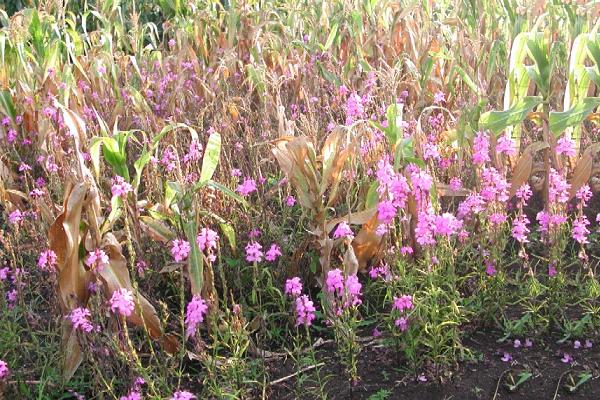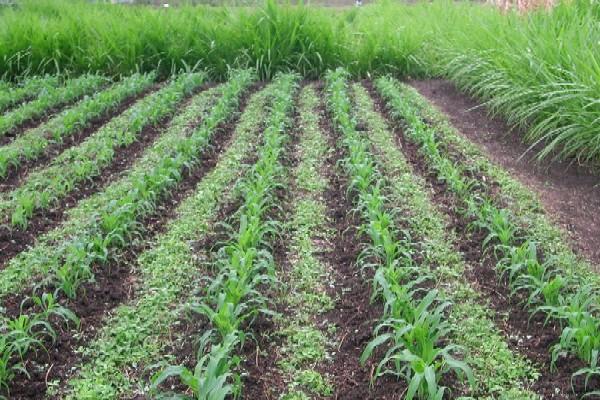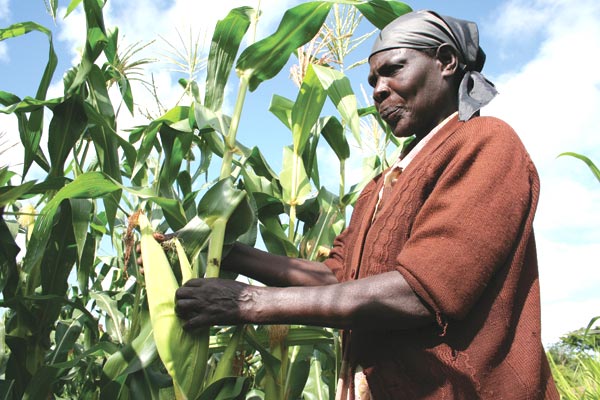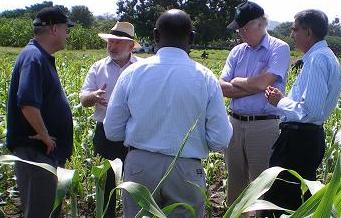|
A platform technology for improving livelihoods of resource poor farmers in sub-Saharan Africa Africa faces increasingly serious problems in its ability to feed its rapidly growing population, resulting in high hunger and poverty incidences. Growth in agricultural productivity is essential to reduce hunger and poverty and ensure food security. Agricultural growth can be achieved by reducing incidence of the major constraints to productivity such as pests, weeds and degraded soils. These constraints are responsible for the continent’s crop productivity being the lowest in the world (around 1t/ha compared with 2.4t/ha in South Asia, 3.2t/ha in Latin America and 4.5t/ha in East Asia and Pacific), and cause high levels of hunger, malnutrition and poverty. More..... Stemborers, parasitic striga weeds and poor soil fertility are the three main constraints to efficient production of cereals in SSA. Losses caused by stemborers can reach as high as 80% in some areas and an average of about 15-40% in others. Losses attributed to striga weeds on the other hand range between 30 and 100% in most areas, and are often exacerbated by the low soil fertility prevalent in the region. The soils are highly degraded due to continuous cropping with limited or no external inputs to improve soil fertility. When the two pests occur together, farmers often lose their entire crop. Crop losses caused by stemborers and striga weeds amount to about US $ 7 billion annually, affecting mostly the resource poor subsistence farmers. More..... A conservation agricultural approach known as `Push-Pull' technology has been developed for integrated management of stemborers, striga weed and soil fertility. Push-pull was developed by scientists at the International Centre of Insect Physiology and Ecology (icipe), in Kenya and Rothamsted Research, in the United Kingdom, in collaboration with other national partners. The technology is appropriate and economical to the resource-poor smallholder farmers in the region as it is based on locally available plants, not expensive external inputs, and fits well with traditional mixed cropping systems in Africa. To date it has been adopted by over 350,298 smallholder farmers in Africa where maize yields have increased from about 1 t/ha to 3.5 t/ha, achieved with minimal inputs. The technology involves intercropping maize with a repellent plant, such as desmodium, and planting an attractive trap plant, such as Napier grass, as a border crop around this intercrop. Gravid stemborer females are repelled or deterred away from the target crop (push) by stimuli that mask host apparency while they are simultaneously attracted (pull) to the trap crop, leaving the target crop protected. Desmodium produces root exudates some of which stimulate the germination of striga seeds and others inhibit their growth after germination. This combination provides a novel means of in situ reduction of the striga seed bank in the soil through efficient suicidal germination even in the presence of graminaceous host plants. Desmodium is a perennial cover crop (live mulch) which is able to exert its striga control effect even when the host crop is out of season, and together with Napier grass protect fragile soils from erosion. It also fixes nitrogen, conserves soil moisture, enhances arthropod abundance and diversity and improves soil organic matter, thereby enabling cereal cropping systems to be more resilient and adaptable to climate change while providing essential environmental services, and making farming systems more robust and sustainable. << Back Our Goal
“To end hunger and poverty for 10 million people by extending Push-Pull technology to 1 million households in sub-Saharan Africa by 2030”, Zeyaur Khan, Coordinator, Push-Pull Programme
TWAS Prize in Agriculture
Prof. Zeyaur R. Khan, Principal Scientist & Programme Leader; Coordinator, Push-Pull Programme, was announced as a co-winner of the TWAS Prize .....More....
Distinguished Research Fellow
Prof. Zeyaur R. Khan designated as icipe's first Thomas Odhiambo Distinguised Research Fellow.....More....
Partners
Push-Pull On Swiss TV
|
|
|
|
|










 Research Partners
Research Partners